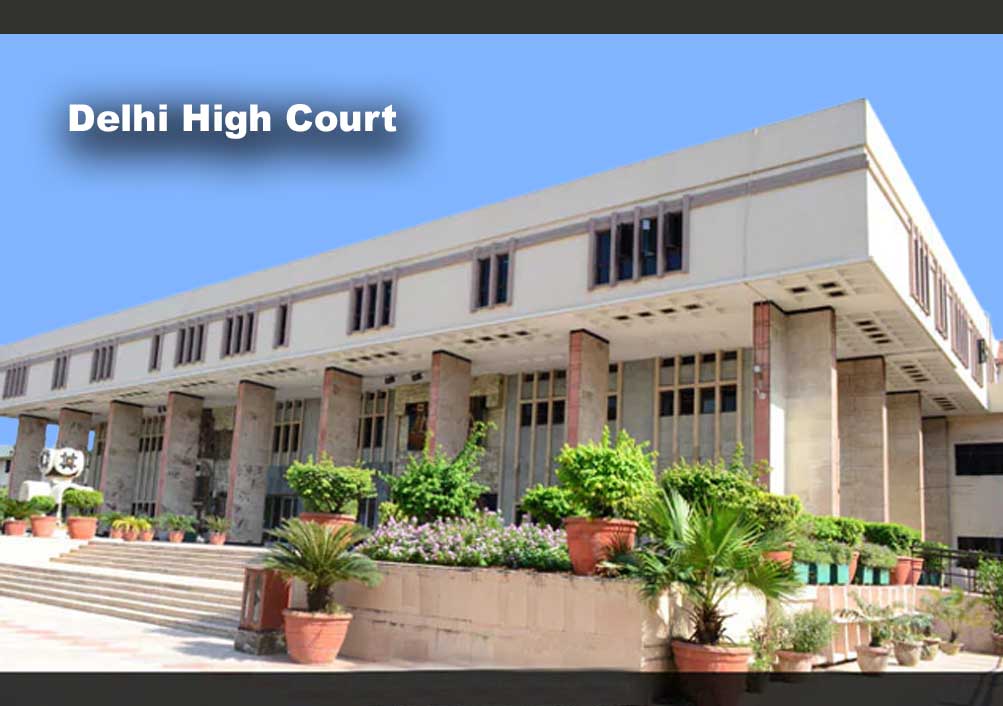In W.P. (C) 6739/2021 -DEL HC- GST Authorities lack power to seize valuable assets under Section 67 of CGST Act, rules Delhi High Court
Justice Vibhu Bakhru & Justice Purushaindra Kumar Kaurav [17-08-2023]

Read Order: Deepak Khandelwal Proprietor M/s Shri Shyam Metal V. Commissioner of CGST, Delhi West & Anr
Chahat Varma
New Delhi, August 23, 2023: The Delhi High Court has ruled that the GST authorities do not have the authority to seize valuable assets such as silver bars and cash under Section 67 of the Central Goods and Services Tax Act (CGST Act), for the reasons that they are unaccounted for or may be liable to confiscation under any other statute. The Court held that the purpose of Section 67 is to detect tax evasion and ensure that taxable supplies are brought to tax, and not to recover tax or secure tax dues.
The factual background of the case was that Deepak Khandelwal, Proprietor M/s Shri Shyam Metal (petitioner), had filed the present petition, praying that directions be issued to the GST Authorities, for unconditional release of two silver bars weighing 29.5 Kgs. and 14.5 Kgs., Rs.7,00,000 in Indian currency, and mobile phones. These items had been seized by the GST authorities from the petitioner's residential premises.
The division bench of Justice Vibhu Bakhru and Justice Purushaindra Kumar Kaurav emphasized that the authority granted by Sub-section (1) of Section 67 of the CGST Act was primarily intended to conduct inspections with the aim of detecting instances of tax evasion or any efforts to evade taxes. This provision was not designed for the purpose of tax recovery or to secure tax dues.
The bench noted that silver bars, being movable assets, did not meet the criteria of securities as defined in Clause (h) of Section 2 of the Securities Contract (Regulation) Act, 1956. The argument presented by the Revenue, asserting that silver bars should be classified as securities, lacked merit. Additionally, the bench emphasized that cash in Indian currency was explicitly excluded from the definition of goods.
The bench added that in situations where goods and supplies are linked to tax evasion, the proper officer is vested with the authority to seize such items to ensure the payment of taxes. After the department attains assurance in terms of discharging the liability or providing the necessary security or bond, as deemed appropriate by the relevant authority, the goods must be released, as outlined in Sub-section (6) of Section 67 of the Act.
The bench also remarked that the power of conducting search and seizure is a significant authority that directly impacts the rights of a taxpayer and intrudes upon their private domain. Endowing authorities with unchecked or unrestrained power of this nature could infringe upon constitutional safeguards. The bench highlighted that a comprehensive examination of all subsections of Section 67 of the Act reveals that they do not intend to permit the seizure of valuable assets as a means to secure the interests of the revenue authorities.
The bench concluded that the search and seizure procedures outlined in Section 67 of the Act are not intended for the purpose of confiscating undisclosed income or assets, or to ensure their taxation. These matters fall within the purview of the Income Tax Act. Therefore, even if it is assumed that the petitioner was unable to provide evidence of the acquisition of the silver bars or account for the cash found in their possession, these items were not liable to be seized under Sub-section (2) of Section 67 of the Act. The authority of the proper officer to seize books, documents, or items does not extend to the seizure of valuable assets based solely on the grounds that they are unaccounted for or potentially subject to confiscation under another statute.
Furthermore, the bench emphasized that even if, hypothetically, it was considered permissible for the proper officer to seize currency and other valuable assets under the authority of Sub-section (2) of Section 67 of the Act, such assets would still be mandated to be returned according to Sub-section (3) of Section 67 of the Act.
In view of the above, the Court directed the authorities to promptly release the currency and other valuable assets that were seized from the petitioner during the search proceedings.
Sign up for our weekly newsletter to stay up to date on our product, events featured blog, special offer and all of the exciting things that take place here at Legitquest.




Add a Comment